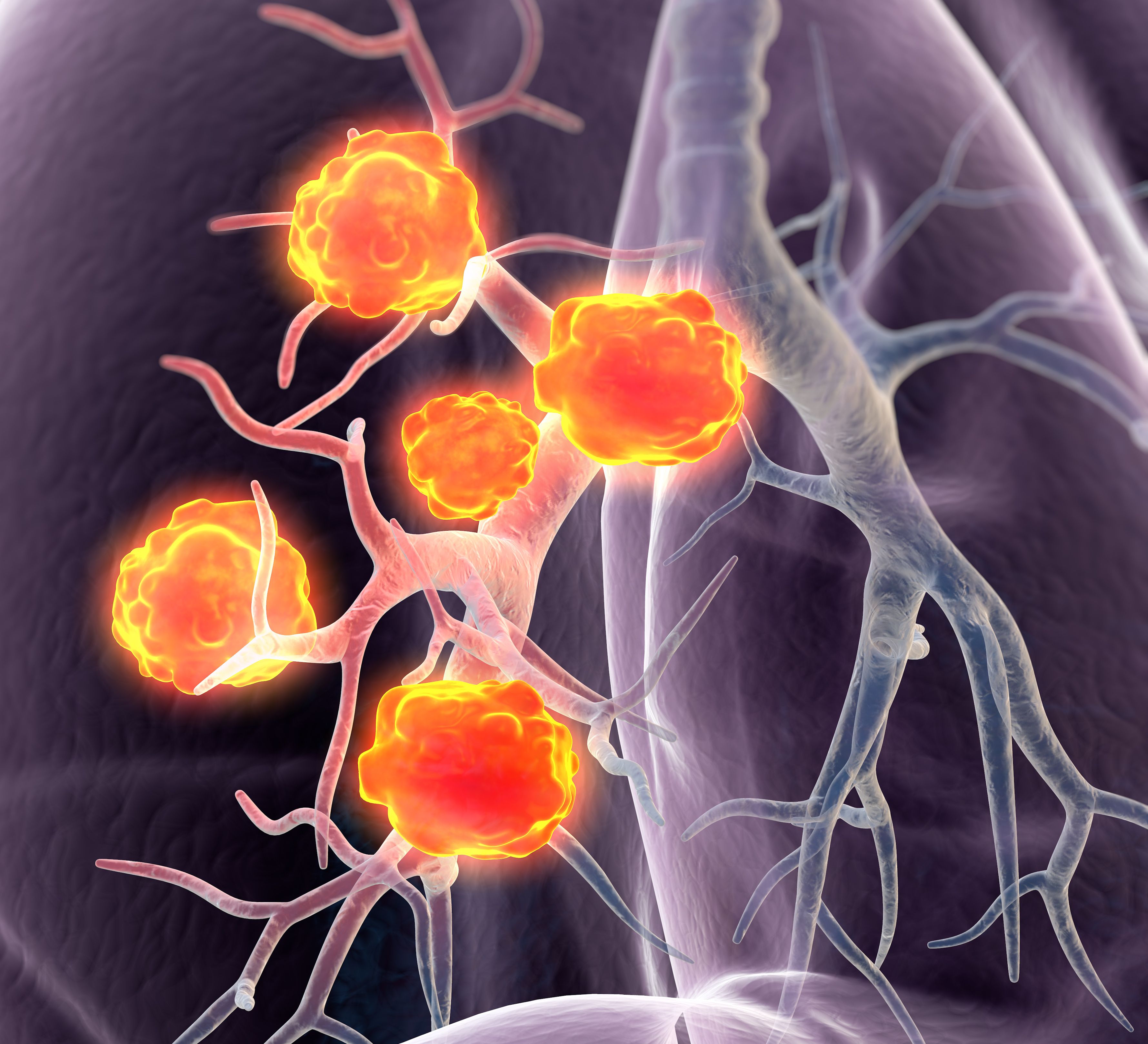Furmonertinib Shows Encouraging Efficacy in EGFR Exon20Ins Mut+ NSCLC
According to Baohui Han, MD, PhD, the confirmed objective response rate was 78.6% for treatment-naïve patients with non–small cell lung cancer with EGFR Exon20 insertion mutations treated with furmonertinib 240 mg daily in the FAVOUR trial.
Baohui Han, MD, PhD

Treatment with furmonertinib yielded encouraging efficacy along with a manageable safety profile in patients with advanced non–small cell lung cancer (NSCLC) harboring EGFR Exon20 insertion (Exon20ins) mutations, according to data from the phase 1b FAVOUR trial (NCT04858958) presented during the 2023 World Conference on Lung Cancer.1
Findings presented by Baohui Han, MD, PhD, showed that the confirmed objective response rate (ORR) by IRC (independent review committee) in the treatment-naïve furmonertinib 240 mg QD cohort was 78.6% (95% CI, 59.05%-91.70%), and 46.2% (n = 28; 95% CI, 26.59%-66.63%) and 38.5% (n = 28; 95% CI, 20.23%-59.43%) in the previously treated furmonertinib 240 and 160 mg cohorts, respectively. Partial responses were seen in 22 (78.6%), 12 (46.2%), and 10 (38.5%) of patients in the treatment-naïve furmonertinib 240 mg QD, previously treated 240 mg, and previously treated 160 mg groups, respectively, and stable disease was observed in 6 (21.4%), 12 (46.2%), and 12 (46.2%), of these respective groups.
In terms of safety, furmonertinib was well-tolerated with the most commonly observed treatment-related adverse event (TRAE) at the 240 mg dose being low-grade diarrhea. No new or unexpected safety signals were identified.
“Furmonertinib showed promising efficacy in both treatment-naïve and previously treated patients with NSCLC with EGFR Exon20ins. In treatment-naïve patients, the confirmed ORR was 78.6% with a preliminary median DOR of 15.2 months. In previously treated patients, both the 240 mg and 160 mg doses were active with confirmed ORR of 46.2% and 38.5% respectively. Antitumor responses were observed across near-loop, far-loop and helical Exon20ins mutations,” said Han, professor of respiratory medicine at Shanghai Chest Hospital of Shanghai Jiao Tong University in China, during the presentation.
Lung tumor © Axel Kock - stock.adobe.com

Furmonertinib, an oral, brain penetrant, EGFR tyrosine kinase inhibitor (TKI) engineered for broad activity and selectivity across EGFR mutations, has previously shown good tolerability when studied at doses up to 240 mg once a day (QD).
The ongoing, phase 1b FAVOUR study is assessing furmonertinib in patients with NSCLC who harbor EGFR Exon20ins mutations. Previous results from the study showed that treatment naive patients with NSCLC with EGFR Exon20ins mutations showed an encouraging overall response rate of 60%.
The study includes patients aged 18 years and older with locally advanced or metastatic NSCLC with a presence of EGFR Exon20ins mutations, an ECOG performance status of 0 or 1, and at least 1 measurable lesion. Patients with asymptomatic stable central nervous system metastasis are also eligible for enrollment.2
Once enrolled, 30 treatment-naïve patients were treated with furmonertinib 240 mg QD, and 60 previously treated patients were randomly assigned to 2 cohorts where they were treated with either furmonertinib 240 mg QD (n = 30) or furmonertinib 160 mg QD (n = 30). Treatment continued until disease progression, intolerable toxicity, or death. Patients received follow-up until disease progression every 6 weeks, and after disease progression or initiation of new therapy every 12 weeks.1
Baseline characteristics included a median age of patients in the treatment-naïve cohort of 61.5 years old (range, 33-73); 37% were male and 63% were female, 17% had presence or history of brain metastases, and the majority of patients had stage IV disease (93%) and an ECOG performance status of 1 (70%). Previously treated patients in the 240 vs 160 mg cohorts had a median age of 55.5 (range, 33-73) and 58.5 (range, 22-77), the majority of patients were female (57% vs 61%), with an ECOG performance status of 1 (93% vs 89%), Stage IV disease (100% vs 96%), and 29% and 39% had brain metastases, respectively. Across the 3 arms, 13%, 96%, and 86% of patients, respectively, received prior treatment with chemotherapy.
Across these cohorts, the DCR by IRC were 100% (95% CI, 87.66%-100.00%), 92.3% (95% CI, 74.87%-99.05%), and 84.6% (95% CI, 65.13%-95.64%). The DOR was 15.2 months (95% CI, 8.74-24.84) in the treatment-naïve furmonertinib 240 mg QD, 13.1 months (95% CI, 5.62-13.80) in the previously treated 240 mg cohort, and 9.7 months (95% CI, 5.59-not achieved) in the previously treated 160 mg cohort.
The median maximum tumor reductions were 50.9% in the treatment-naïve group, and 54.2% and 36.2% in the previously treated 260 mg and 160 mg groups. Most of the responses to treatment across all 3 cohorts occurred at the first tumor assessment. The longest DOR observed is greater than 26 months. Treatment remains ongoing.
Regarding safety, furmonertinib was well tolerated at both the 240 mg and 160 mg dose levels. There were low rates of dose reduction and treatment discontinuation due to TRAEs. TRAEs of any grade were seen in 29 (97%) treatment-naïve patients, 28 (100%) in the previously treated 240 mg cohort, and 25 (89%) in the previously treated 160 mg cohort. Grade 3 or greater TRAEs occurred in 4 (13%), 8 (29%), and 5 (18%) of patients across cohorts, and no deaths occurred due to TRAEs.
Between cohorts, the most common TRAEs of any grade were diarrhea (73% vs 86% vs 32%), anemia (43% vs 25% vs 14%), aspartate aminotransferase increased (27% vs 25% vs 36%), and alanine aminotransferase increased (23% vs 25% vs 29%).
Overall safety and tolerability findings appeared better in the 240 mg treatment-naïve cohort of patients compared with the 240 mg pretreated group. No patients in the treatment-naïve group discontinued treatment due to TRAEs.
“Based on FAVOUR results, a global, registrational, phase 3 study in first-line patients with locally advanced or metastatic NSCLC with EGFR Exon20ins mutations has been initiated [FURVENT/FURMO-004; NCT05607550],” added Han.